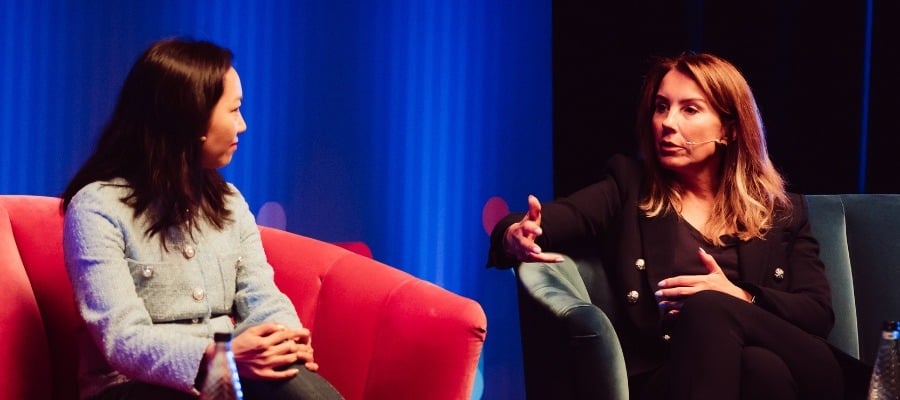
The role of the CFO has undergone a profound transformation. Industry experts shared their insights on how the role has changed and the future of the CFO.
From traditional finance stewardship to becoming strategic business partners, the role of the CFO is changing.
Today’s CFO is expected to have a steer on business decision-making, optimising operations, technology integration and risk management - while others are increasingly embedded in ESG initiatives, talent management programmes and investor relations. Some CFOs have greater ambitions of progressing to become the COO or CEO.
In this roundtable, experts discussed the evolution of the CFO role, the skills and characteristics they require of themselves and teams in a digitised world and how they engage across the c-suite to drive business change and transformation.
With Sasha Qadri moderating, the panellists included:
- Sacha Herrmann, CFO, Soldo
- Huiming Chen, CFO - Europe Commercial, Illumina
- Helen Ashton, CEO, Shapebeyond
Future of the CFO: Overview
- Evolution of the CFO
- Skills upgrades and technology adoption
- Into the looking glass: examining the role of the CFO

Evolution of the CFO
The shift in the role of the CFO is almost unrecognisable compared to just five years ago according to Helen Ashton, CEO at Shapebeyond.
She reminisced about the early days when finance was primarily focused on historical numbers, arguing that “it was very much around control, ticking and bashing.” Over time, the focus began to shift towards more commercial aspects and forecasting, making the role more “forward-looking”.
“In the last decade the CFO has moved away from being quite back of house looking at the historics to being much more front and centre working with the CEO, looking at strategy, looking at how resources get deployed.”
Helen emphasised that the CFO role offers the unique opportunity to create significant value within an organisation due to the involvement with various aspects of the business.
Agreeing with Helen’s observations, Illumina’s CFO - Europe Commercial, Huiming Chen, added that finance serves as a “business language” for all organisational activities.
From R&D to customer service, “everything is traceable on your financial statement,” positioning the CFO uniquely to see the “bigger picture” and contribute to strategy, board committees or even transitioning to roles such as CEO or COO.
Huiming highlighted the growing expectation for CFOs to be the CEO’s “strategic partner, co-pilot, or a sounding board”, focusing more on value creation rather than just improving and reporting the numbers.
Soldo’s CFO, Sacha Herrmann, stressed that the CFO role should not be viewed as a mere transitional position, but as a critical and fulfilling role. Moderator Sasha Qadri cited the stats indicating that a significant percentage of S&P 500 or Fortune 500 CFOs eventually move into CEO roles. However, Sacha argued: “It's cool to be CFO now because the perception of others around us has changed.”
Skill upgrades and technology adoption
The discussion delved into the changing skill set required for modern CFOs today.
Helen noted that contemporary CFOs spend a large portion of their time “speaking with other people and working with other members of the C-suite,” as well as other external stakeholders. The ability to simplify complex financial information, storytelling and relationship-building has become crucial.
“How do you create the best value for the business? It's almost a bit like a conductor or a chef, it's how you bring all those pieces together into a coherent story.”
The integration of technology was noted as another major change within the CFO role among the panellists. Helen shared her experiences with large organisations:
“Data is not in the space you would expect it to be, it's not accessible, there's loads of systems.” She highlighted the importance of having a single source of truth for data, also emphasising the need for CFOs to guide their organisations through digital transformations.
Elaborating on the need for CFOs to possess strategic thinking, transformation skills and technological-savvy, Huiming argued:
“It's also about how CFOs make the right investment decision. Not necessarily just the finance function, but across the company.” These skills are essential for managing digital transformations and equipping finance teams with the tools and knowledge to leverage technologies like AI.
Into the looking glass: Examining the role of the CFO
What will the role of the CFO look like in five years time?
Looking to the future, the panellists agreed that the CFO role will continue to evolve.
Sacha argued that only the market will tell: “If the money is as today very expensive then I know more or less where my job will go. If we come back again in crazy times where money is cheap and everybody just focuses on growth whatever the cost is, then I don't know.”
Helen suggested that the role of the CFO will become more integrated across the business, with CFOs taking on responsibilities beyond the traditional finance functions:
“They can get involved with going to data analytics and help with data warehouses or on technology transformation.” One other aspect she pointed out was that clear job descriptions for CFOs will become rare as the role continues to adapt to the needs of the business.
“I think in a way the CFO is in the position to potentially shape the scope in a way that suits the individual because of the nature of it.” Huiming added that the future CFO will likely combine roles such as Chief Strategy Officer or Head of Enterprise Data Analytics, reflecting the growing importance of strategic thinking and data governance within the role.
Discover what it takes to transition from CIO / CDO to CFO and more in the full panel video for ‘The Future of the CFO’. This roundtable was made in partnership with Soldo.
SUBMIT A COMMENT
RELATED ARTICLES
Join the community
To join the HotTopics Community and gain access to our exclusive content, events and networking opportunities simply fill in the form below.

